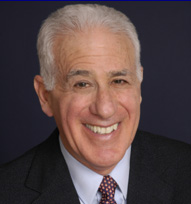

Listening: An Essential Negotiating Skill
We lawyers generally are pretty good talkers. But in my over forty years settling cases as a litigator and mediator, I’ve learned, like many of you, that listening is at least, if not more important, than talking. The way to get good results isn’t by dominating the conversation, arguing or channeling Rambo. It is by finding areas of agreement, which requires effective listening.
Dale Carnegie put it this way: “The only way on earth to influence the other fellow is to talk about what he wants and show him how to get it.(1)
Effective listening means actively absorbing the information given to you by a speaker, showing that you are listening and interested and that the message has been received. Effective listening can help calm tensions, build rapport, break impasse and provide the information needed to reach agreement.
But here’s the challenge. Most people, lawyers included, are not good listeners. The average person listens at about 25% efficiency, which means we miss 75% of what the speaker is saying.(2)
How can we be better listeners? Here are some reminders:
1. Pay attention. Maintain eye contact. Avoid negative facial expressions and body language.
2. Paraphrase/summarize what is said. Put the speaker’s thoughts in your own words to show you heard and understand what she said.
3. Ask clarifying questions to get information about the person’s interests and needs. Don’t ask too many questions about details.
4. Don’t rush - get to know the person and give him the opportunity to reveal himself and his real interests.
5. Don’t argue, interrupt or try to top the speaker’s story with one of your own.
6. Avoid shifting the topic. It communicates that you haven’t listened or are not interested.
7. Show respect for the speaker. Use his name. Be friendly.
8. Listen non-judgmentally. Criticism makes people defensive.
9. Try honestly to see things from the other person’s point of view.
10. Don’t offer solutions prematurely. When you do, rather than saying “You should,’ try “What if…”
11. Minimize note-taking and avoid rustling through papers.
12. Listen for areas of agreement and for items on the other person’s wish list that are not very important to you. They may prompt concessions you can make without compromising your own interests.
13. If the other person makes a good point, acknowledge it. If you’re wrong about something, admit it.
14. Don’t respond in kind to expressions of anger. It’s more productive just to acknowledge what the speaker is angry about.
15. Remember the wise words of TV talk show host Larry King, an ace interviewer: “I never learned anything while I was talking.”(3)
How important is listening? When the goal is achieving an agreement rather than winning an argument, good listening is essential. Understanding what the other person wants, and why, is a key to getting what you want.
Copyright Richard S. Weil, December 2016
(1) How to Win Friends and Influence People, ebook Version, 2005, Cornerstone Publishing, p. 48.
(2) Huseman, Lahiff & Penrose, Business Communication: Strategies and Skills. Chicago; Dryden Press (1988)
(3) www.goodreads.com. Larry King Quotes.